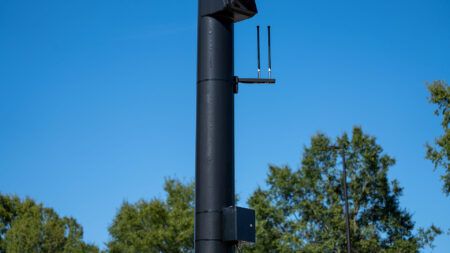New research by ATG Access has found that almost a quarter of British people (24%) would be happy to fund smart city measures that aim to tackle urbanization problems, such as congestion and security, through tax contributions.
The study, which involved 1,000 participants, found that more than half (57%) would be happy for their tax to go toward smart traffic signals, and 44% toward smart signs that are capable of providing real-time traffic updates.
Nearly a quarter (24%) said they would also be willing to fund smart barriers that help with incident management.
Investment in the smart city concept looks set to grow, with global spending expected to hit US$135bn by 2021. However, uptake in the UK has thus far been relatively slow, with cost often cited as an issue.
Despite the current lack of investment, there is a clear interest in the smart city concept; 74% of people interested in smart city measures believe they would help to improve day-to-day issues such as congestion.
Conducted as part of ATG’s ‘Smart cities: Turning the dream into a reality’ report, the research outlines urbanization problems that could be solved through the adoption of specific smart city concepts, such as traffic, crime and emergency incident response. It explores consumer attitudes and perceptions toward smart cities, as well as ways to overcome current barriers to adoption in the UK.
Gavin Hepburn, managing director at ATG Access, a leading innovator of road blockers, bollards and vehicle barrier systems, said, “As our cities become more and more congested, it’s becoming increasingly clear that our current urban infrastructure is no longer fit for purpose. Smart cities are a clear step forward.
“There are still some issues to be circumnavigated if the UK smart city is to make the transition from far-flung concept to reality,” he added, “with funding uncertainties and cost being key issues.
“But what is apparent from our research is that people can clearly see the benefits of a smart city. The solutions are available and, in the most part, proven and tested, so it is time we begin to look for ways to help fund and support these types of projects that facilitate a safer and smarter future for our British cities.”





